20 Famous Clans of Scotland and Their Historic Influence
by Aimee Li on Dec 30, 2024
Table of Content
The clans of Scotland have long been celebrated for their rich history, unique traditions, and enduring legacies. Steeped in centuries of conflict, camaraderie, and culture, the Scottish clans played pivotal roles in shaping the nation’s identity. These familial groups were much more than bloodlines; they were a way of life deeply rooted in loyalty, unity, and survival.
Today, Scottish clans captivate global audiences, from genealogists tracing their ancestry to enthusiasts enamored with tales of bravery and resilience. Let us delve into the traditions and heritage that define the famous clans of Scotland.
I. Understanding Scottish Clans
1. What is a Scottish clan?
A Scottish clan is a family group that shares the same last name and is usually linked to a particular area. Clans function as social entities and networks that offer support and a sense of belonging. Historically, chief-headed clans and their loyalty were often demonstrated during conflicts. Every Clan has its unique name, land or territory, clan seat, Chief, tartan, coat of arms, motto, and a history that is still recounted today. They frequently experience a bond that has been preserved among many clans.

2. The Origins of Scottish Clans
The term "clan" comes from the Gaelic word clann, which translates to "children" or "family." Scottish clans originated as kinship groups linked by shared ancestry during the medieval era. As time passed, these groups grew to include individuals connected through geography, mutual protection, and loyalty to a leader.

It is believed that there are hundreds of clans in Scotland, but pinpointing an exact number is challenging. Some sources claim over 1000, while others suggest around 200, and previous estimates have included figures like 400 and 500. Additionally, the Standing Council of Scottish Chiefs indicates there are about 140 recognized clan names.
3. Scottish Clan System
Clans operate in a systematic manner, similar to various organizations. At the top stands the Clan Chief, followed closely by the Tanist, who is responsible for assuming any chiefly duties if the Chief is absent. Next are the Chieftains, who oversee different sections of each Clan. Within the Chieftains, various designated titles and roles exist, indicating the complexity of clans. Following the Chieftains is the Clan itself. It might be unexpected to learn that although numerous clan members are connected by blood, some individuals do not have any familial relationship with the Clan and join for reasons like security.

Consequently, clans can be categorized into two groups: "Native Men" and "Broken Men." Furthermore, there are Septs, who are Clan members but do not share the same last name as the Clan.
II. Top 20 Famous Clans of Scotland
1. Clan Campbell
Clan Campbell was among the largest and most influential clans in the Highlands. Based mainly in Argyll, the chiefs of Clan Campbell eventually attained the title of Dukes of Argyll. The Clan is well-known for its involvement in the Battle of Culloden, where it supported government troops against the Jacobites, and for its participation in quelling the Highland Uprisings during the 18th and 19th centuries.
Gaelic Name: Caimbeul
Crest: On a boar’s head erased fessways erased Or, armed Argent, langued Gules
Motto: Ne Obliviscaris (Do not forget)
Origin of Name: Gaelic, Caimbeul from ‘Cam’ (wry) and ‘Beul’ (mouth)
Badge: Bog Myrtle
Lands: Argyll
Clan Chief: His Grace the Duke of Argyll, the 13th Duke
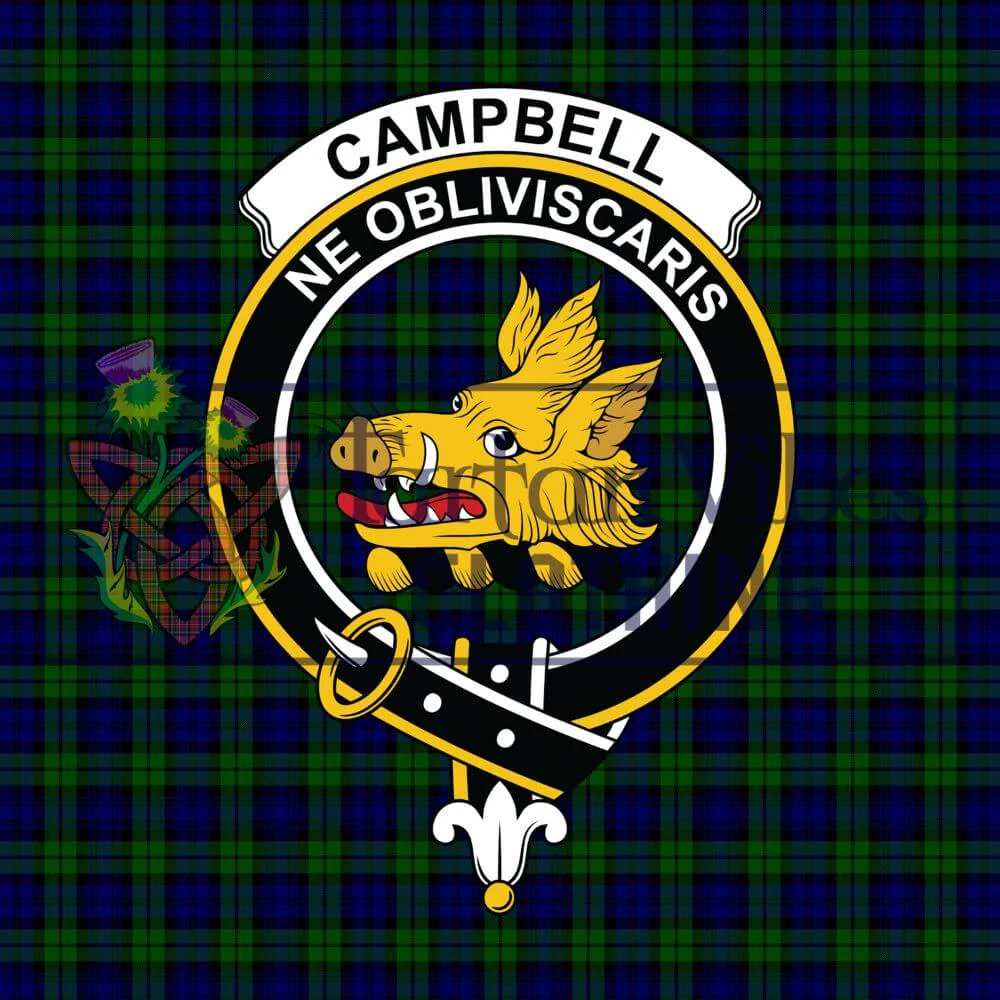
In subsequent years, several Dukes of Argyll took on significant roles within the community of the famous clans of Scotland. For instance, George Campbell, the 8th Duke of Argyll, was a British Cabinet Minister in the 19th century. His successor, Lord Lorne, married one of Queen Victoria’s daughters and later became the Governor General of Canada. Nowadays, Clan Campbell is a vibrant organization with members globally who take pride in their history and customs.
2. Clan MacDonald
The MacDonalds resided in the Glencoe area and were among the most prominent clans in the Highlands. They possessed vast tracts of land on the west coast, which led to the clan leader being called the “Lord of the Isles.” Unfortunately, several members of the MacDonald clan were ruthlessly killed during the Massacre of Glencoe on February 13, 1692.
Gaelic Name: MacDhomhnuill
Crest: On a crest coronet Or, a hand in armour fessways couped at the elbow Proper holding a cross crosslet fitchée Gules
Motto: Per mare per terras (By sea and by land)
Origin of Name: Gaelic, Domhnull (World ruler)
Badge: Heather
Lands: The Western Isles
Historic Seat: Finlaggan Castle, Islay
Clan Chief: The Rt. Hon. The Lord MacDonald
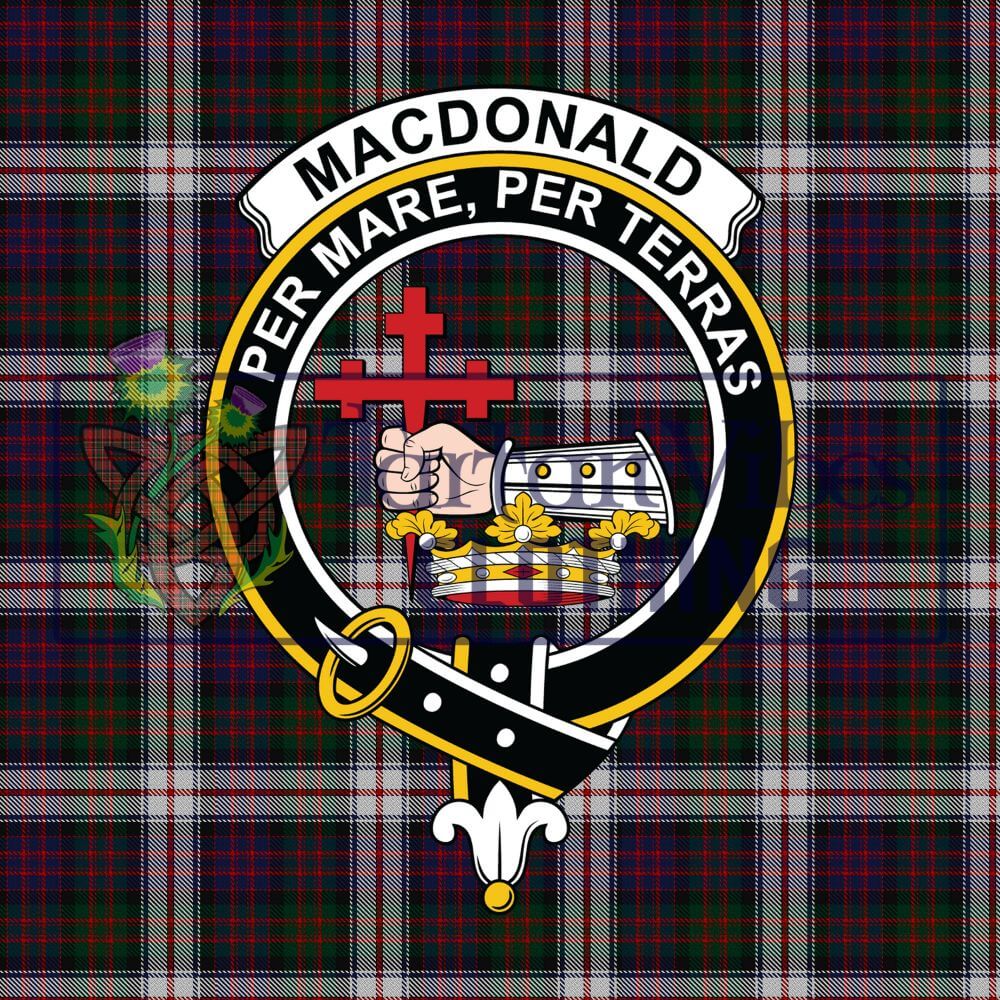
The Clan Campbells, who supported the British monarchy, received orders to assault the Clan MacDonalds in their residences due to their status as adversaries of the crown. This incident was so shocking that it remains well-remembered in Scotland today. It even influenced the renowned “Red Wedding” scene in the third season of Game of Thrones. Years later, the MacDonald clan joined the Jacobites at the Battle of Culloden in 1745.
3. Clan Bruce
The Bruce family, one of the famous Clans of Scotland, traces its origins to a Norman knight who came to England with William the Conqueror in 1066. The name "Bruce" derives from Brix in Normandy, France. They held significant lands in northern England, with a branch settling in Annandale, Scotland, during the 12th century. King Robert the Bruce, a key figure among the famous clans of Scotland, became King of Scotland in 1306. Despite early setbacks, including defeat at Methven, he launched a successful campaign against England, securing a historic victory at the Battle of Bannockburn in 1314. Robert the Bruce solidified his rule, and the conflict with England ended with the Treaty of Northampton in 1328. He passed away at Cardross the following year.
Gaelic Name: Brus
Crest: A lion stantan, Azure, armed and langued Gules
Motto: Fuimus (We have been)
Origin of Name: Origin of Name:
Badge: Rosemary
Lands: Annandale, Clackmannan, and Elgin
Clan Chief: The Rt. Hon. Earl of Elgin & Kincardine K.T.

4. Clan Stewart
Among the most distinguished of the famous Clans of Scotland, Clan Stewart rose to prominence as the royal family of Scotland, with their dynasty beginning in 1371. The clan's most notable event occurred during the Battle of Flodden in 1513, where King James IV, a Stewart, lost his life along with a significant portion of the Scottish nobility. This tragic defeat marked a critical moment in Scottish history and solidified the clan's place within the narrative of Scotland's identity. Clan Stewart continues to thrive today, celebrating its history and traditions as a vital branch of the famous clans of Scotland.
Gaelic Name: Stiùbhard
Crest: A pelican Argent, winged Or, in her nest feeding her young, Proper
Motto: Virescit vulnere virtus (Courage grows strong at a wound)
Origin of Name: From the High Steward of Scotland
Badge: Thistle
Lands: Renfrewshire, Teviotdale and Lauderdale
Clan Chief: None, armigerous clan

5. Clan Fraser
Clan Fraser is celebrated as one of the famous Clans of Scotland with a rich legacy that includes significant figures and events. The clan notably played a crucial role in the Battle of Culloden in 1746, where they supported the Jacobite cause. Leading the charge was Simon Fraser, who demonstrated remarkable bravery during this pivotal moment in Scottish history. The clan's influence extended throughout the 18th century, with members participating actively in various Jacobite risings. Today, Clan Fraser maintains a global presence, connecting descendants who honor their ancestors and the storied past of the famous clans of Scotland.
Gaelic Name: Friseal
Crest: On a mount a flourish of strawberries leaved and fructed, Proper
Motto: All my hope is in God
Origin of Name: French fraisse (Strawberry)
Badge: Yew
Lands: East Lothian, Aberdeenshire
Clan Chief: The Rt. Hon. The Lady Saltoun

6. Clan MacLeod
Clan MacLeod is among the oldest clans in Scotland, with origins dating back to the 12th century. The Clan is well-known for its connection to the Isle of Skye, where they owned land and castles for many centuries. The MacLeods trace their lineage to the Norse Kings from the 13th century. In 1265, Leod, son of Olaf the Black, acquired portions of Skye along with Lewis and Harris. The Clan is also recognized for its role in the Battle of Culloden, where MacLeod members fought against the British crown's forces.
Gaelic Name: MacLeòid
Crest: A bull’s head cabossed Sable, horned Or, between two flags Gules, staved at the First
Motto: Hold Fast
Badge: Juniper
Lands: Skye and Harris
Clan Chief: Hugh MacLeod of MacLeod
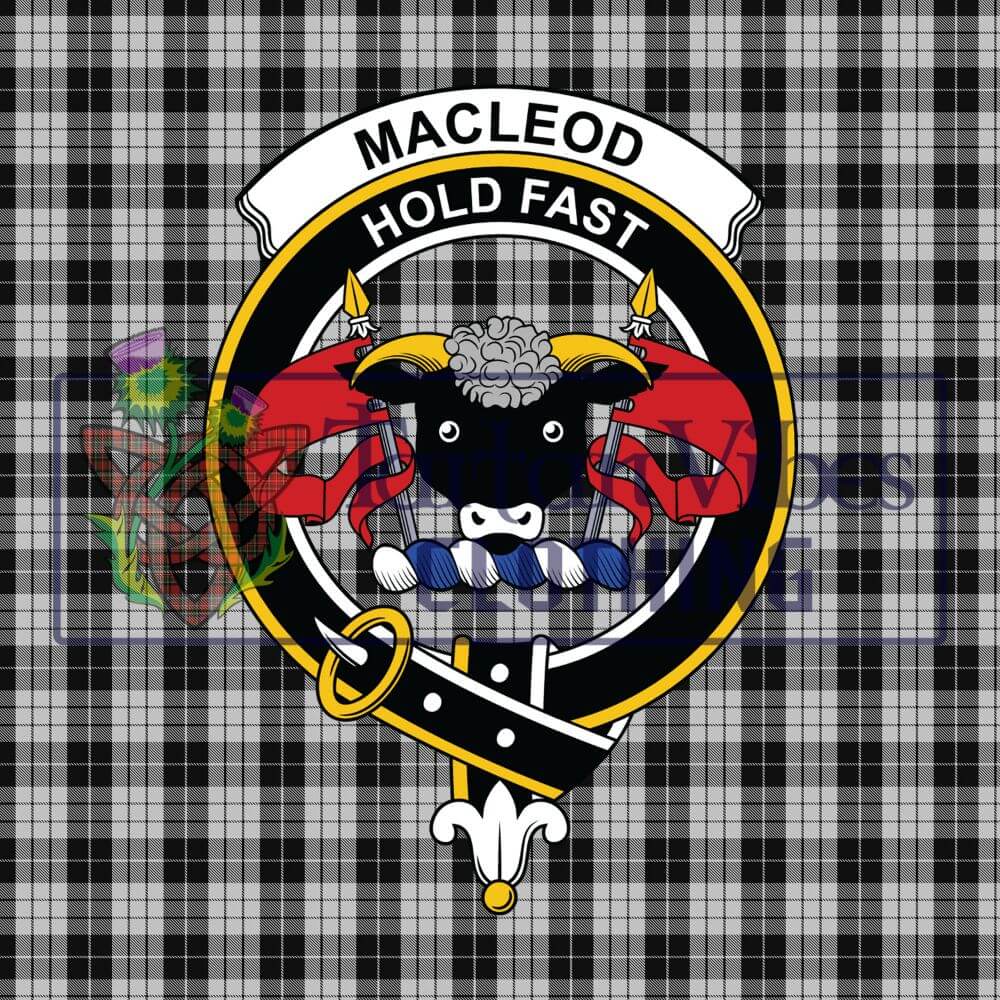
Dunvegan Castle has been the home of Clan MacLeod for 800 years, making it Scotland's oldest continuously inhabited castle. Currently, Clan MacLeod ranks as one of Scotland's largest and most engaged clans, boasting a worldwide community of members who take pride in their heritage and traditions.
7. Clan Douglas
The name Douglas originates from the Gaelic "dubhghlais," meaning “black water.” Clan Douglas, one of the famous Clans of Scotland, emerged in the 12th century as a powerful and influential family, with influence stretching to France and Sweden. Sir William Douglas, “The Hardy,” fought alongside Sir William Wallace during the Scottish Wars of Independence and died in 1298 while imprisoned in the Tower of London. His son, James Douglas, a key ally of Robert the Bruce, earned the nickname “Black Douglas” or “The Good Sir James,” further cementing Clan Douglas’s legacy among the famous clans of Scotland.
Gaelic Name: Dubhghlas
Crest: On a chapeau, Gules, furred Ermine, a salamander, Vert, encircled with flames of fire, Proper
Motto: Jamais Arriere (Never behind)
Origin of Name: Placename, Lanark (Black stream)
Lands: Lanarkshire, Galloway, Dumfriesshire and Angus
Clan Chief: None, armigerous clan
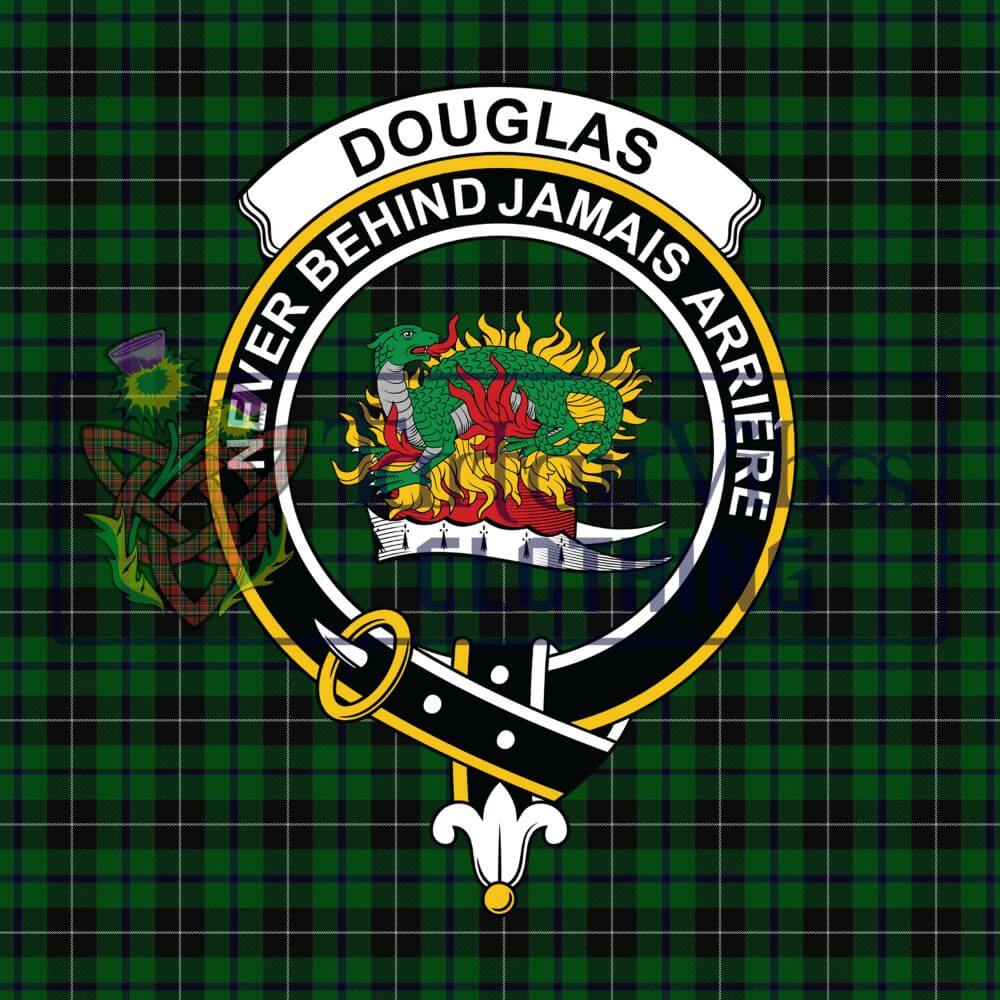
By 1440, Clan Douglas remained a dominant force, but envy among rival courtiers led to the infamous “Black Dinner,” where the young Earl of Douglas and his brother were betrayed and killed at Edinburgh Castle. This dramatic event, akin to the Massacre of Glencoe, inspired the “Red Wedding” scene in Game of Thrones, reflecting the turbulent history of the famous clans of Scotland.
8. Clan MacGregor
Clan MacGregor stands prominently among the famous clans of Scotland, with a storied history dating back to the medieval era. Known for their pride and independence, the MacGregors were recognized for their bravery and combat skills. The Clan is best known for its connection to the legendary Scottish hero, Rob Roy MacGregor, who became a symbol of resistance against the British crown in the late 17th and early 18th centuries. The MacGregors also gained notoriety for their participation in the Highland Uprisings, which led to the Clan's suppression and the imposition of severe restrictions on its members.
Gaelic Name: MacGrioghair
Crest: A lion’s head erased Proper, crowned with an antique crown, Or
Motto: ’S Rioghal Mo Dhream (My race is royal)
Origin of Name: Son of Gregory (Flocksman)
Badge: Pine
Lands: Argyll and Perthshire
Historic Seat: Bannatyne, Newtyle, Angus
Clan Chief: Sir Malcolm MacGregor of MacGregor Bt
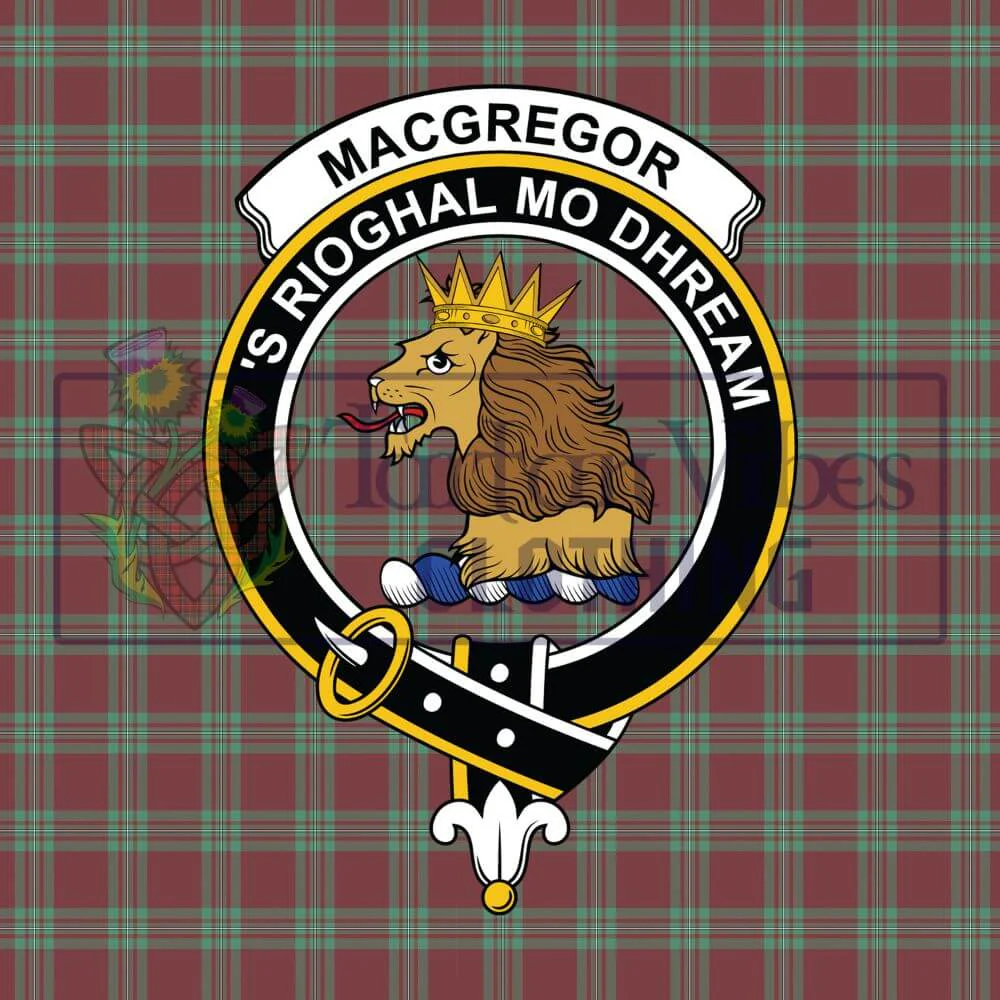
9. Clan Sinclair
The famous clans of Scotland include the renowned Clan Sinclair, originally hailing from Saint-Clair-sur-Epte in Normandy. This popular clan held vast lands across Caithness, the Orkney Islands, and the Lowlands of Lothians. It is thought that Clan Sinclair arrived in Scotland during the Norman Conquest in the 11th century. Clan Sinclair was instrumental in both the Scottish-Norwegian War and the Scottish War of Independence, cementing its status among the famous clans of Scotland. Additionally, William Sinclair was the mastermind behind the stunning Rosslyn Chapel, situated just outside Edinburgh.
Gaelic Name: Mac na Ceardadh
Crest: A cock, proper, armed, and beaked Or
Motto: Commit thy work to God
Origin of Name: Place name, French de Sancto Claro
Badge: Whin
Lands: Midlothian, Caithness, Orkney
Clan Chief: The Rt. Hon. The Earl of Caithness

10. Clan Mackenzie
Clan Mackenzie, known as "MacCoinneach" in Gaelic, is proudly counted among the famous clans of Scotland. Their territory encompassed the Isle of Lewis and significant Wester and Easter Ross areas. Eilean Donan Castle, renowned for its beauty, served as the Clan’s stronghold for many years.
Gaelic Name: MacCoinnich
Crest: A mount in flames, Proper
Motto: Leceo Non Uro (I shine, not burn)
Origin of Name: Gaelic, ‘Son of the fair’
Badge: Stagshorn clubmoss
Lands: Ross and Cromarty, Isle of Lewis
Clan Chief: John Mackenzie, 5th Earl of Cromartie
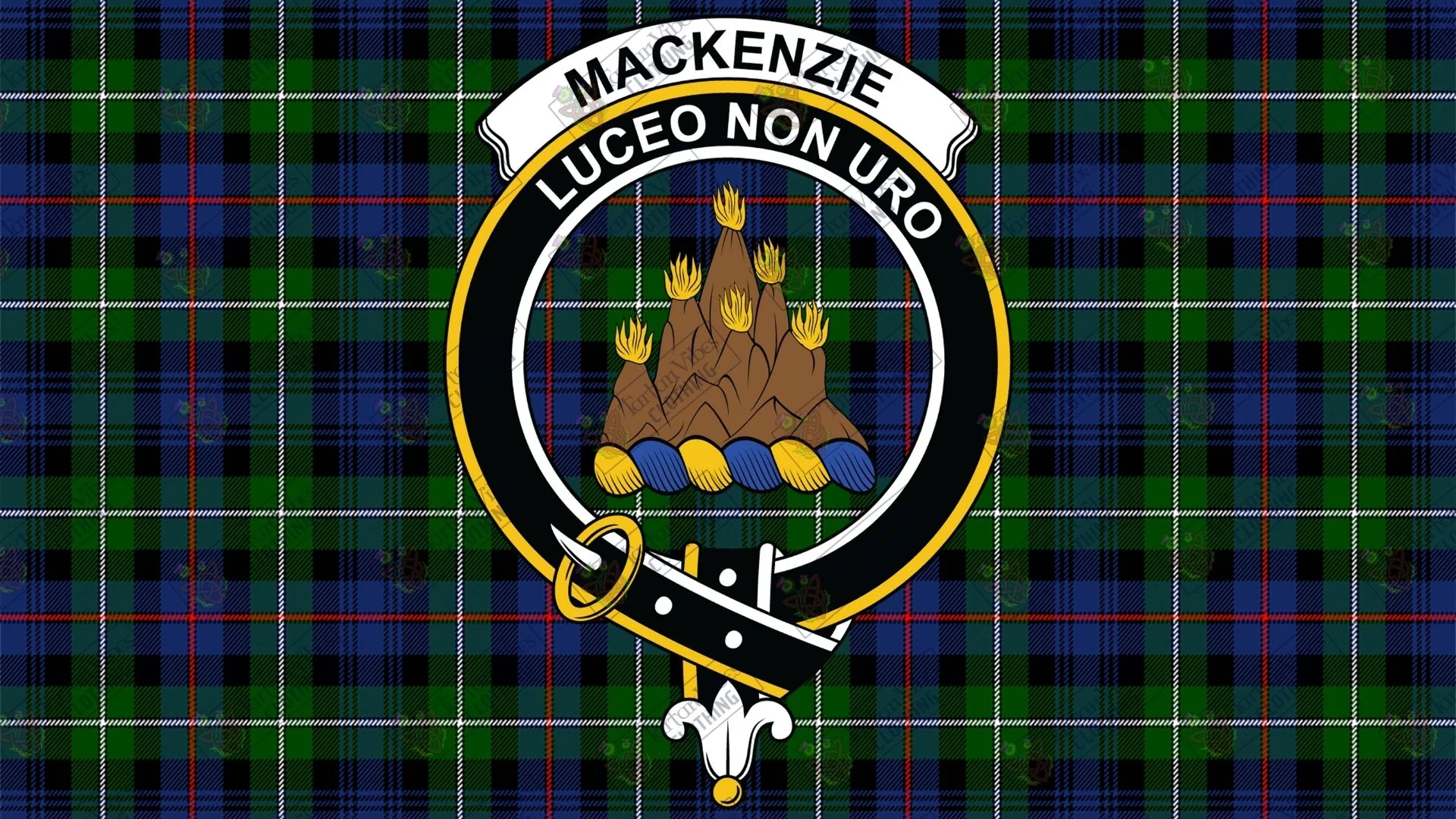
The Mackenzies demonstrated unwavering loyalty to Robert the Bruce during the Scottish Wars of Independence, a defining moment in the history of the famous clans of Scotland. Their support extended to the Jacobite cause, which they backed until 1745. That year, some members of the Clan chose to change allegiance and support the British government instead.
11. Clan Hamilton
The Clan Hamilton is believed to descend from Walter Fitz Gilbert, who received the lands of Cadzow from Robert the Bruce. In 1445, James of Cadzow was granted the title of Lord Hamilton and later, in 1474, married Princess Mary, the daughter of King James II. Their son became the Earl of Arran in 1503, placing him next in line for the Scottish throne. The 4th Earl of Arran served as the keeper of Edinburgh and Stirling Castles and was elevated to Marquess in 1599. Supporting King Charles I, the third Marquess was made a Duke in 1643. However, in 1648, the Duke led a Scottish army into England, only to be defeated at the Battle of Preston by Oliver Cromwell’s forces. Tragically, in 1649, he was executed in London alongside his king.
Gaelic Name: Hamultun
Crest: In a ducal coronet an oak tree fructed and penetrated transversely in the main stem by a frame saw Proper, the frame Or
Motto: Through
Origin of Name: Placename, England, Hambledon
Lands: Renfrewshire, Arran
Historic Seat: Lennoxlove House, East Lothian
Clan Chief: His Grace The Duke of Hamilton

12. Clan Wallace
Clan Wallace, one of the famous clans of Scotland, originates from the Scottish Lowlands, particularly the Strathclyde region near Glasgow, with branches in Ayrshire and Renfrewshire. Like many Lowland families, they adopted Norman-style surnames, with Richard Walensis first recorded in 1160. The clan's most renowned figure, Sir William Wallace, known as “the Hero of Scotland,” was born in Elderslie in 1274. He led Scottish forces against King Edward I, achieving a major victory at the Battle of Stirling Bridge in 1297 but suffering defeat at Falkirk in 1298. Despite setbacks, Wallace continued guerrilla warfare until his betrayal and execution in 1305, cementing his legacy as a hero among the famous clans of Scotland.
Gaelic Name: Ullas
Crest: Issuant from a crest coronet of four (three visible) strawberry leaves, Or, a dexter arm vambraced, the hand brandishing a sword, all Proper
Motto: Pro libertate (For liberty)
Origin of Name: From Volcae, a tribe in North Gaul
Badge: Oak
Lands: Ayrshire and Renfrewshire
Clan Chief: Ian Wallace Of That Ilk
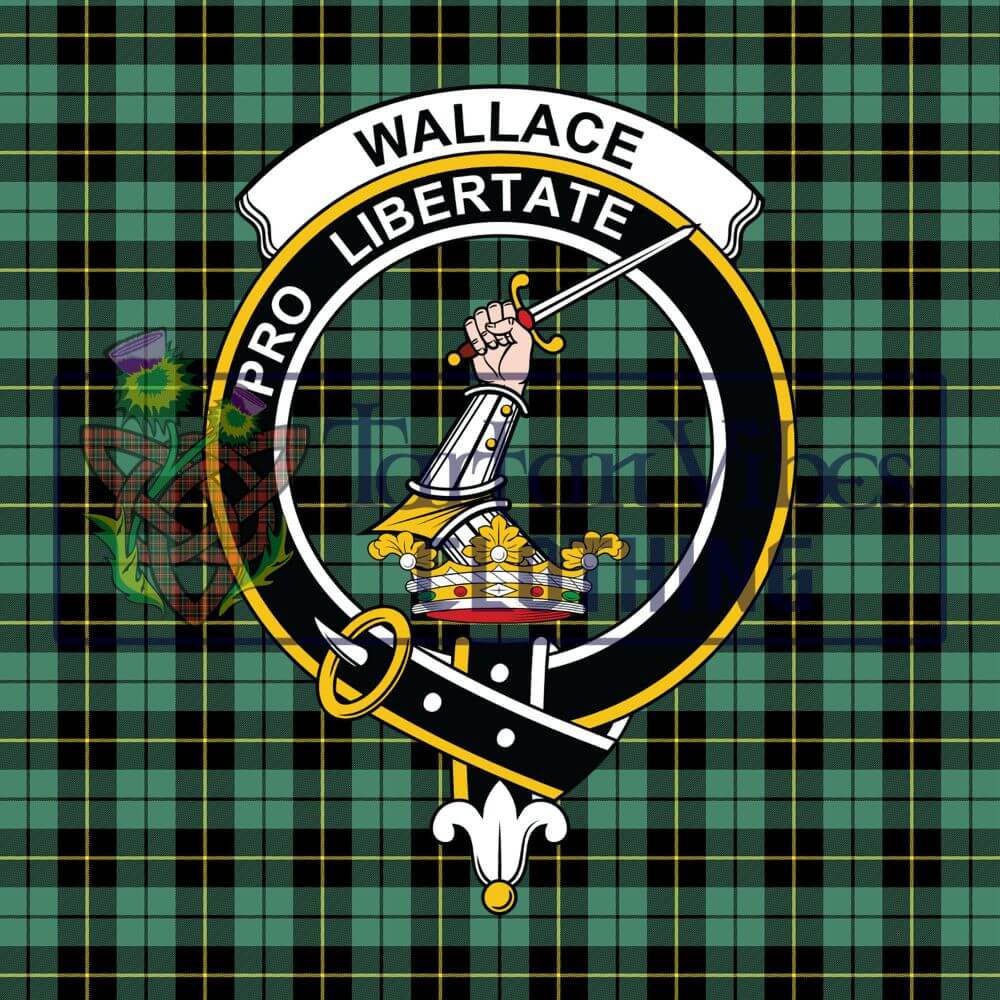
13. Clan Maclean
Clan MacLean is one of the famous clans of Scotland, celebrated for its rich heritage and the honor, courage, and strength displayed by its members in battle. The MacLeans held extensive lands in Argyll, the Isle of Mull, and the Outer Hebrides. Alongside various clan skirmishes, they also participated in the Jacobite Risings. Their enduring contributions to Scotland's past ensure Clan MacLean remains a cornerstone in the story of the famous clans of Scotland.
Gaelic Name: MacGhille Eoin
Crest: A tower embattled Argent
Motto: Virtue Mine Honour
Badge: Crowberry
Lands: Morven, Mull, Coll, Tiree
Clan Chief: Sir Lachlan MacLean of Duart and Morven

14. Clan Robertson
The Clan Robertsons, also known as Clan Donnachaidh (children of Duncan), descend from the Celtic Earls of Atholl, who trace their lineage back to the kings of Dalriada. In the early 1300s, ‘Stout Duncan’ was a minor landowner and clan chief in Highland Perthshire. While the Clan was generally loyal to the Bruce and Stewart royal families, they also gained a reputation as raiders and feuders during medieval times. The Clan's name change occurred with the fourth chief, Robert Riabhach (Grizzled) Duncanson, who is notable for tracking down and bringing to justice the murderers of King James I in 1437. The Robertsons took part in the Jacobite Uprisings of 1715 and 1745. During the 18th and early 19th centuries, the Robertson Chiefs consistently declined to evict their clan members for the sake of more lucrative sheep farming.
Gaelic Name: MacDhonnachaidh
Crest: A dexter hand holding up an imperial crown, Proper
Motto: Virtutis gloria merces (Glory is the reward of valour)
Origin of Name: Son of Robert
Badge: Bracken
Lands: Struan, Rannoch, Perthshire
Clan Chief: Gilbert Robertson of Struan

15. Clan MacDougall
The countryside around Oban was once dominated by Clan MacDougall, a name proudly listed among the famous clans of Scotland. Known for their fierce and fearless spirit, encapsulated by their motto "Victory or Death," Clan MacDougall played a vital role in shaping the history of the Hebrides. The name Dougall, meaning "dark stranger" in Gaelic, originates from the son of King Somerled, a prominent ruler of the Hebrides. After Somerled's death, Dougall inherited many of the lands his father had governed. While the Clan possessed several castles, the most renowned was Dunolie Castle, located near Oban. Built in the 11th century and abandoned 500 years later, this historic site is now a captivating ruin open to the public—a must-visit for anyone exploring the region and seeking to connect with the heritage of the famous clans of Scotland.
Gaelic Name: MacDhùghaill
Crest: A dexter arm in armour embowed fessways couped Proper, holding a cross crosslet fitchée erect Gules
Motto: Buaidh No Bàs (Victory or death)
Origin of Name: Gaelic, Dughall
Badge: Bell heath
Lands: Lorn
Clan Chief: Morag MacDougall of MacDougall

16. Clan Mackintosh
Clan Mackintosh, which emerged from the Inverness area, developed from Clan MacDuff in the 12th century under Shaw MacDuff’s leadership. The Mackintoshes were ardent supporters of the Jacobite cause, a defining trait of many famous clans of Scotland. After the unsuccessful rebellion of 1715, numerous clan members emigrated to North America, spreading the legacy of this prominent Scottish clan abroad. In the clan chief's absence, Lady Anne Mackintosh rallied an army of 400 men to participate in the final Jacobite uprising of 1745, known as the Battle of Culloden. Legend has it that Mackintosh soldiers were among the first to charge at the British troops.
Gaelic Name: Mac an Tòisich
Crest: A cat-a-mountain salient guardant, Proper
Motto: Touch not the cat bot a glove
Origin of Name: Gaelic, ‘Son of the thane’
Badge: Red whortleberry
Lands: Inverness-shire
Clan Chief: John Lachlan Mackintosh of Mackintosh

17. Clan Gunn
Clan Gunn, known for its fierce independence, holds a unique position among the famous clans of Scotland. This clan is often associated with the Highland clans' battles of the late Middle Ages, including conflicts with Clan Keith and Clan Sutherland during the tumultuous 16th and 17th centuries. One critical engagement was part of the Civil War period (1644-1650), where Clan Gunn supported the Royalists under Montrose. Today, members of Clan Gunn honor their heritage through gatherings and events that celebrate their distinct traditions, ensuring their legacy remains vibrant within the tapestry of the famous clans of Scotland.
Gaelic Name: Guinne
Crest: A dexter hand wielding a sword in bend, Proper
Motto: Aut Pax Aut Bellum (Either peace or war)
Origin of Name: Norse, Gunn-arr
Badge: Juniper
Lands: Caithness and Sutherland
Clan Chief: Iain A Gunn

18. Clan MacNab
The Clan MacNabs are proudly recognized among the famous clans of Scotland, boasting a rich history that dates back to the early 12th century. They are closely associated with Loch Tay and Glendochart, exerting their influence from their castle on Eilean Ran, an island in the River Lochay. For many years, the MacNabs fought fiercely with the Neish Clan over land and livestock. These intense disputes reflect the spirit and determination that define the famous clans of Scotland. This rivalry peaked in 1522 at the Battle of Glen Boultachan, where the MacNabs emerged victorious.
Crest: The head of a savage affrontée, Proper
Motto: Timor Ommis Abesto (Let fear be far from all)
Badge: Stone bramble or common heath
Lands: Killin
Historic Seat: MacNab Castle
Clan Chief: Jamie Macnab of Macnab

19. Clan Elliot
Clan Elliot, among the famous clans of Scotland, are renowned as skilled "riding clans" of the Scottish Borders, excelling in raiding and defending their lands. Their settlement in Teviotdale dates back to the reign of Robert the Bruce. James, the 15th Chief, was killed alongside James IV at the Battle of Flodden in 1513, a pivotal moment in the history of Scotland’s famous clans. In 1565, a fierce conflict erupted between the Elliots and the Scotts after Scott of Buccleuch executed four Elliots for cattle theft.
Crest: Raised fist holding a sword
Motto: Fortiter Et Recte (Boldly and rightly)
Origin of Name: Hewbrew, Elias
Badge: White hawthorn
Lands: Borders
Region: Liddisdale
Clan Chief: Madam Margaret Eliott of Redheugh

The Elliots held properties at Reheugh, Larriston, Arkleton, and Stobs. Notable members include Lord Heathfield, also known as George Armstrong Elliot, who defended Gibraltar during the Great Siege (1779–1783), earning recognition as one of Britain’s greatest military feats. His remarkable service, celebrated in the legacy of the famous clans, earned him the titles Lord Heathfield and Baron Gibraltar in 1787.
20. Clan MacQuarrie
The Clan MacQuarrie hails from the small Inner Hebridean island of Ulva, off Scotland’s northwest coast. As one of the famous clans of Scotland, its earliest documented chief was John MacQuarrie of Ulva, who passed in 1473. The clan faced devastating losses in 1651 at the Battle of Inverkeithing, where Allan MacQuarrie, the clan chief, and many followers were killed while fighting for King Charles II. Major-General Lachlan MacQuarrie, another notable figure among the famous clans of Scotland, served with distinction in the Black Watch and was later appointed Governor of New South Wales. Under his leadership, the struggling colony thrived, earning him the title "Father of Australia."
Gaelic Name: MacGuaidhre
Crest: Out of an antique crown, An arm in armour embowed, grasping a dagger, all Proper
Motto: Turris Fortis Mihi Deus (God is a strong tower to me)
Origin of Name: Gaelic, Son Guaire (Proud or noble)
Badge: Pine
Lands: Ulva
Clan Chief: None, armigerous clan

Connect with Heritage: Dive into the Legends of the Famous Clans of Scotland Today!
The legacy of the Famous Clans of Scotland is a testament to the country’s rich tapestry of history, culture, and tradition. From the tumultuous tales of feuds and loyalty to the vibrant traditions still celebrated today, these clans continue to fascinate and inspire. Whether you have Scottish ancestry or simply a love for its culture, understanding the stories behind these famous clans offers a deeper appreciation of Scotland's unique identity.
Frequently Asked Questions
How many Scottish clans are there?
There are hundreds of Scottish clans, with the number often estimated to be around 500. Each Clan has its own unique history and traditions.
What is the oldest Scottish Clan?
Clan Donnachaidh (Clan Robertson) is often regarded as one of the oldest, with origins tracing back to the 13th century.
Who was the most prominent Clan in Scotland?
Clan Donald
Nearly half of the lands were acquired by the Clan Donald Lands Trust, established and supported by members of Clan Donald from around the globe. Clan Donald remains the most prominent Clan in Scotland, and with the descendants of thousands of MacDonalds who emigrated, it is also the most prominent Clan worldwide.
What is the most minor Scottish Clan?
Clan MacWee is the most minor Clan in Scotland.








What clan does the surname Ure fall under.
Clan Cumyn ruled Scotland for over 100 years…what happen to our clan not making the list??
Great information, just traced my heritage back to VIKING BLOOD via Scotland.
Who where the caretakers and helped form the House of Stewart